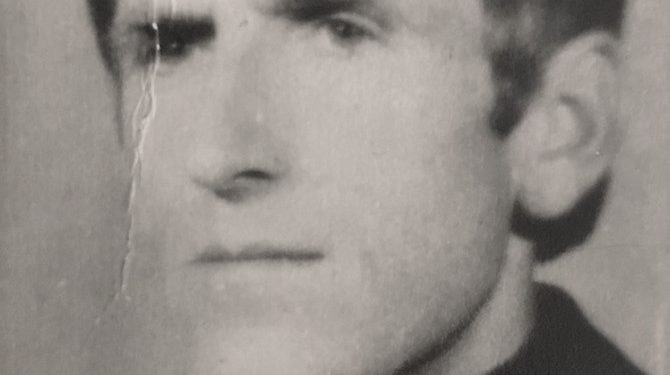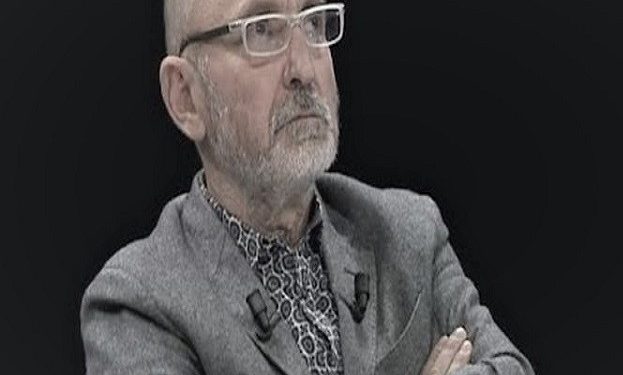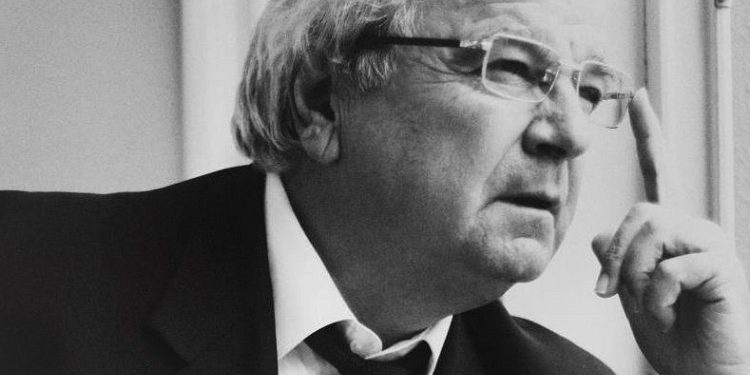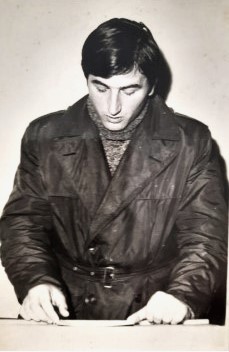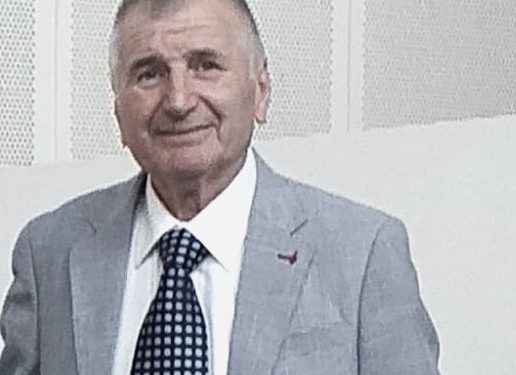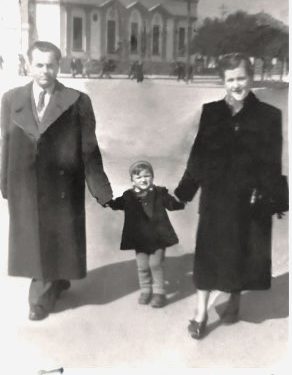By Nestor Topencharov
The twelfth part
THE DRAMA OF LIFE
(THE STORY OF A FAMILY)
I dedicate this book to: All fellow sufferers. Their families. And in particular, to people who did not have the opportunity to tell the odyssey of life, during the communist dictatorship.
FOREWORD
Memorie.al / I was born in the city of Korça, on October 22, 1953. I left Albania in October 1990, after we were given the right to repatriate to Yugoslavia (now North Macedonia). In June 1992, I immigrated to Italy, where I still live today. Although I have been away for 32 years, I did not cut ties, as Albania was the country of my birth, where I spent 37 years, and that part of my blood is Albanian. Years later, the ties with Albania were strengthened, as I also took my wife from Durrës. We came every year on vacation, but the short time of our stay meant that many contacts were cut off. However, true friends and comrades remained forever in my heart.
In the last three years, I did not have the opportunity to visit Albania. But during 2022, I came several times. My commitment on the one hand and the coincidence on the other, made it possible for me to re-establish connections with friends and colleagues whom I had not seen for decades. Knowing my past, some of them advised me to write down what had happened in my life. At first, this idea seemed like a utopia to me, since even though I had been a good student; I had no inclination towards drafting. Then I reflected. I would just write my story, true events, where not much inspiration was needed. Perhaps a writer would know how to present these events, as a true pen artist knows. While I will write them, without many descriptions: briefly, simply, naked, as they happened.
Something else that pushed me even more to write this book was an interview on TV Klan, which I saw in October of this year, directed by the well-known journalist Blendi Fevziu. I didn’t seek revenge. But I didn’t even have justice. With the help of this book, I will make known to the Albanian public opinion, the role of the individuals who contributed to my suffering and that of my family. And today, I am putting my finger on these “beings”, not for the task they had, but for the way they performed it. I will start my writing with my grandfather, from my mother’s side, to continue with my father, where I will touch on the most important moments of their lives. This will help the reader to know my background.
Then I will also talk about myself. In this book I will also tell some events, one more dramatic than the other, that happened to people I had the honor of knowing. I am glad that many books have been published on the suffering and persecution of “enemies of the people” and their families in internment camps and prisons during the communist dictatorship. I was able to read some of these works. I believe that this book, in a modest way, will contribute to know even more the inhumane methods of the State Security, the way they created accusations and how they destroyed people and families to keep the people under terror.
Author
December, 2022
CHAPTER THREE
Seeing this problematic situation, which was becoming frequent, I went to the doctor of the command, (who rarely came to the camp, since we had a convicted doctor there, but whose word did not weigh). He, after checking my sick leg, gave me the opportunity to change the profile and switch to the wagon in the group. There, most of the work was with wings. You had to fill the specified number of wagons with shovels, but often you also had to use the sledgehammer to break the big stones. Although I had not done this type of work, I quickly got the hang of it. I was assigned to a strong group, in the second zone, in which one of the wagon drivers had just been released from prison. There was pyrite and copper in that area.
The pyrite areas were a horror. Temperature above 40 degrees. There was no air. Whoever worked on those fronts kept the air pipe close. Work clothes, we used those long pants, which were given to us as underwear. They were bathed in sweat. These changes (work clothes) were left in a hut on the mountain, near the gallery. In the winter time, when we came to work, we found them frozen. Then we tried to soften them a little, hitting them with the tail of the beak, or an ax, and we put them on, half-frozen, and we ran into the gallery.
At a young age I saw the French film ‘Zherminal’, based on the novel by the writer Emil Zola. This film showed the bad life of miners in a mine in the 19th century. I was reminded of those people, who worked in very difficult conditions, with those faces and work clothes, blackened by coal. A century had passed, and in the mine of Spaçi, you saw the same colored people, but this time from pyrite. They looked like they were painted with varnish. But the working conditions and security were worse.
We always had boots on our feet. Not only at work but also the rest of the time we were in the camp. We didn’t wear rubber boots, because they hurt our legs. In the brigade, we had a group of Dibrans, highly respected people, such as Beqir Capa and Xhemal Spata, with their painful stories. I also remember another Dibran, a young man, Xhemal Tota, who worked as a miner. (Fate brought me to see him, in a video call. It was a great pleasure for me to have this contact, with this fellow sufferer. After 40 years, I saw those same bright eyes, transmitting positive energy, in those hard prison times).
In this brigade we had another group, with miner Dhimitër Stefa. All three were originally shepherds-walkers. Very nice people and great workers. I remember with love and respect, all these comrades and friends of the problems. I remember the sad story of a fellow sufferer, a much respected man, who worked in this brigade. His tragedy had started many years ago, exactly one night when, together with his parents, brothers and their families, with his wife and a few months old daughter, he had taken the road to freedom.
After crossing the border, he noticed that the woman and the child were left behind. When he returned to help them, he was caught by the border forces. They had severely punished them. Twenty-two years of imprisonment for him and 15 years for his wife. The woman’s people took the baby, a few months old. During the prison years, he worked hard to help his wife with ALL, since no one came to him. In addition, the girl was also kept away. When after the prison, the wife went to her village; the family members forced her to make separation documents with her husband. For this man, this was a very heavy blow.
He kept his great sorrow inside. For a while, it changed in appearance. He looked much older. Several years had passed. One day he was informed that someone had come to meet him. He was surprised after 18 years had passed without anyone coming to him. Parents and brothers with their families were in America. The woman had separated him and to her people, he did not exist. Who could it be?
With these thoughts, he reached the gate of the meeting. There he saw a young girl. It was the daughter. – “Father,” he said. – Now you have me. When you finish these years that you have left, we will live together.” This was the most beautiful gift that could be given to this good man, in these difficult years. While writing this book, I found out that this fellow sufferer passed away a few years ago. May his memory be honored?
I was assigned to a group of miners, a boy from Udënishti, Muharrem Xhydollari, while the other wagon driver was Fadil Dema, from the area of Laçi. I don’t remember how many wagons we filled per husband, but I know that a lot of work was required of us. When I came to bed to sleep, I held my arms up from exhaustion. The work was life-threatening. God has miraculously saved me on two occasions.
He realized that the collapse had no more material and to make the plan, the police forced you to enter the space. You had no guarantees. From one moment to the next, pieces of rock could break off, to disappear from this world. There had been a few cases of fatal accidents, many others with bodily harm, but for the command, there was no problem. Car-prisons came and went and other young people were brought, so that the plan could be realized.
There were times when someone refused to take risks. Then the police tied him up. He often notified another policeman in the area, and together, they tried to tighten the bars as hard as possible. The spirituality of some of them went further than the tightening of bars. Heavy weights, such as gears or wagon wheels, were hung on his hands bound by irons. At the end of the shift, reinforcements arrived from the camp and brought the bound victim forward. It ended up in the dungeon. There have been many such cases.
One of those that left a mark in the history of Spaçi was the case of Fatos Lubonja, who, after being re-sentenced, refused to work in the mine. I saw it once when we were going up to the gallery with the work brigade. I was second shift. At this moment, Fatos was being taken down, accompanied by two policemen, who hit and pushed him. For many months the beatings and dungeons continued, but they could not defeat that boy. Finally, he was transferred to the Burrel prison, together with Spartak Njjela.
While I did not know Fatos closely, I did know Spartak. At that time, I was a leveler in the first area. He had not long been transferred from Ballshi. They had assigned him surface work. Despite his shaved head and prison garb, he was a handsome boy. The surface workers had a shack, where several times during the winter, we levelers also came to warm up.
Escaping from Spaçi was not easy. There were 3-4 high fences with barbed wire around the camp and two fences in the mine area. In some places where the terrain was more problematic, there was reinforcement. At fairly close distances, there were wooden towers, with powerful searchlights. Soldiers stood guard there, armed with automatic weapons. When it got dark, the camp was brightly lit.
I remember one year in late autumn, two fellow sufferers escaped from the camp. The direction was known, crossing the border. One night they were the third shift, taking advantage of the rugged terrain and poor lighting in the area, they had gone under the wire. After almost a year, two more escaped, opening a gallery behind the siege. These attempts ended without success.
One of these fugitives was Ahmet Hoxha. I had known it from the beginning, when I was working on the inclined plane. He worked as an armorer in the mine and it happened that he came with other armorers, for a few minutes, to our shack to warm up. He had gone to prison at the age of 19, for escaping. At that time he had served 20 years in prison. He was 39 years old, but all these years in hell had aged him prematurely.
There was still work to be done, many more years. He was convicted of escape and re-convicted after trying to escape several times, but without success. The last time they caught him; they sentenced him to death and shot him. His only “guilt” was that he wanted to live free, in a free world.
Another time we were locked up in the camp was when the mine fence was damaged by heavy rain. In this case, we were given the opportunity to relax. In Spac, we had no days off. It was very difficult for us when the shifts changed, especially when you went from the third shift to the second. After a week of grueling night work, to make it to the second shift, there were only 3 hours of sleep left.
During a hot summer, I started having a headache that got worse and worse. Like someone hit me in the back of the head with a hammer. Then this pain went to my cheeks and finally, to my forehead. This pain followed me for many years. It was the result of high temperatures and humidity in the mine of the work, the acid corroded us, especially in the pyrite areas. Even the water we drank was acidic. In the bathrooms, where the water flowed from the faucet, the cement had turned red. Even the iron rails of the gallery were corroded by the acid, but we resisted it. Apparently, we were stronger than iron.
When I was still working as a grader, they brought us another work police. There was a young man, also this gentleman, his name was Gjergj. A man who had correct behavior, the most imprisoned. When it happened that the convicted brigadier complained to him about some work problem or, some contradiction with a convict, he passed it by with little indifference. Apparently, someone from the spies of the brigade had reported it to the command. From that day, he started behaving badly.
Almost at the same time, he had stomach problems and because of this he was removed from the mine and made a camp policeman. As for me, due to the problem of varicose veins, they changed my brigade and shift. The presence of this policeman became very difficult for me. When he entered the camp, his former work brigade would climb the mountain, while my brigade would return from work. When we lined up to enter the canteen, he tried to provoke me when he saw that I was slightly out of line, or if I was talking to someone.
On one occasion, I was late for the bathroom, and when I got up the aisle, he turned me back, left me without food. Sometimes I would sit on a bench in the inner courtyards of the camp and unbutton my jacket, or roll up my sleeves a little, to catch the sun. This was not allowed by the command regulations. Even physical exercises were not allowed, since “the enemy of the class should not be seasoned”. He used to pass by and only address me. I avoided colliding with him.
One word was enough to contradict them and I would end up in the dungeon. This situation continued for several months, until one day when I was on the second shift, I was informed that I would not go to work. Like me, three other co-sufferers, who slept in the same dormitory, had reported. They were all good guys. A few weeks ago, there was a fight between some people in the room where I was sleeping. We found out that they had kept us as witnesses. I didn’t like it.
During these years, in the Internal Branch and in Spac, they had not been able to make me a tool, and now, without waiting, they were trying to implicate me in a process that I had nothing to do with. The system triumphed over us, not when it condemned or re-sentenced us, but when it turned us into spies, witnesses, immoral and thieves. So as a man without dignity to them, when you were freed, you no longer posed any danger.
We were told to go upstairs. The trial took place in the command buildings, in one of the halls. We were separated into separate rooms. After a few minutes, Marash Kumublla, a boy from the Shkodra area, passed in front of the window. He had been tied up and two policemen were taking him to the dungeons, which were nearby. He was also called as a witness. Marashi was an honest man, a captain’s boy. He was a close friend of Toma, Toma Ndoja, and the Toma who was killed in the Qafe Bari Revolt. As it seemed, Marashi would have spoken a few more words, which did not go well with the judge.
When it was my turn and I entered, I saw that the hall was full of policemen and soldiers. These constituted the public. When they asked me about the incident, I expressed my surprise, on what basis they presented me as a witness. No one had asked me if I knew about it. At first they were tight, but to get out of the situation, they kept asking if I knew these two accused. I told you they were from my side and they were hardworking boys. Memorie.al




